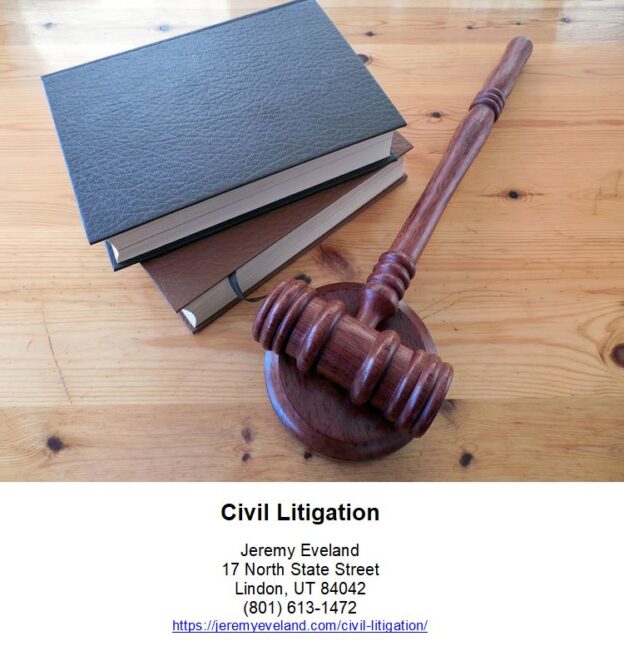-
Attorney at Law
- Introduction
- The Role of a Franchise Lawyer in Dispute Resolution
- What is a Franchise?
- How to Choose the Right Franchise Lawyer for Your Business
- The Benefits of Working with a Franchise Lawyer
- What is a Master Franchise Agreement?
- Understanding the Franchise Agreement: What Franchisees Need to Know
- What to Look for in a Franchise Lawyer
“Protecting Your Franchise Investment with Experienced Legal Guidance”
Introduction
Franchise Lawyer is a specialized area of law that deals with the legal aspects of franchising. It involves the negotiation and drafting of franchise agreements, the registration of trademarks, and the protection of intellectual property rights. Franchise lawyers also provide advice on the legal aspects of franchising, such as the structure of the franchise agreement, the disclosure requirements, and the enforcement of the franchise agreement. They also provide advice on the legal aspects of franchising, such as the structure of the franchise agreement, the disclosure requirements, and the enforcement of the franchise agreement. Franchise lawyers are knowledgeable in the laws and regulations that govern franchising, and they can help franchisees and franchisors understand their rights and obligations under the franchise agreement.
The Role of a Franchise Lawyer in Dispute Resolution
A franchise lawyer plays an important role in dispute resolution. Franchise lawyers are experienced in the laws and regulations that govern franchising, and they can provide valuable advice and assistance to both franchisors and franchisees.
When a dispute arises between a franchisor and a franchisee, a franchise lawyer can help to resolve the dispute in a timely and cost-effective manner. The lawyer can provide advice on the legal rights and obligations of both parties, and can help to negotiate a resolution that is acceptable to both sides.
Franchise lawyers can also provide advice on the best course of action to take in a dispute. They can help to identify the issues at hand and suggest strategies for resolving the dispute. They can also provide advice on the best way to approach the dispute, such as through mediation or arbitration.
Franchise lawyers can also help to draft and review contracts and other documents related to the dispute. They can ensure that the documents are legally binding and that they accurately reflect the agreement between the parties.
Finally, franchise lawyers can provide representation in court if the dispute cannot be resolved through negotiation or mediation. They can help to prepare the case and present it in court, and can provide advice on the best way to proceed.
In summary, franchise lawyers play an important role in dispute resolution. They can provide valuable advice and assistance to both franchisors and franchisees, and can help to ensure that disputes are resolved in a timely and cost-effective manner.
What is a Franchise?
A franchise is a business model that allows an individual or group to purchase the rights to use a company’s name, logo, and business model in order to sell its products or services. The franchisor, or the company that owns the rights to the franchise, provides the franchisee with the necessary resources and support to operate the business. This includes training, marketing materials, and access to the franchisor’s established customer base. In exchange, the franchisee pays a fee to the franchisor and agrees to follow the franchisor’s rules and regulations. Franchising is a popular business model that has been used by many successful companies, such as McDonald’s, Subway, and 7-Eleven.
How to Choose the Right Franchise Lawyer for Your Business
Choosing the right franchise lawyer for your business is an important decision. A franchise lawyer can provide invaluable advice and guidance on the legal aspects of franchising, from the initial franchise agreement to ongoing compliance and dispute resolution. Here are some tips to help you select the right franchise lawyer for your business.
1. Research: Start by researching franchise lawyers in your area. Look for lawyers who specialize in franchise law and have experience in the industry. Check their credentials and read reviews from past clients.
2. Interview: Once you have identified a few potential lawyers, arrange to meet with them in person. Ask questions about their experience, fees, and approach to franchise law. Make sure you feel comfortable with the lawyer and that they understand your business and its needs.
3. References: Ask the lawyer for references from past clients. Contact the references and ask about their experience with the lawyer. This will give you an idea of how the lawyer works and how satisfied their clients are.
4. Fees: Discuss the lawyer’s fees and payment terms. Make sure you understand what services are included in the fee and what additional services may be charged.
5. Contract: Once you have chosen a lawyer, make sure you have a written contract that outlines the services to be provided and the fees to be paid.
By following these tips, you can ensure that you select the right franchise lawyer for your business. A good franchise lawyer can provide invaluable advice and guidance on the legal aspects of franchising, helping you to protect your business and maximize its potential.
The Benefits of Working with a Franchise Lawyer
Working with a franchise lawyer can be a great benefit to any business owner looking to expand their business through franchising. A franchise lawyer is an experienced attorney who specializes in the legal aspects of franchising. They understand the complexities of the franchise agreement and can provide invaluable advice and guidance to help you make the best decisions for your business.
A franchise lawyer can help you understand the legal implications of franchising and ensure that you are in compliance with all applicable laws. They can review the franchise agreement and provide advice on the best way to structure the agreement to protect your interests. They can also help you negotiate the terms of the agreement and ensure that you are getting the best deal possible.
A franchise lawyer can also help you navigate the process of registering your franchise with the appropriate government agencies. They can provide advice on the best way to structure the franchise agreement to ensure that you are in compliance with all applicable laws. They can also help you understand the tax implications of franchising and provide advice on how to minimize your tax liability.
A franchise lawyer can also provide advice on how to protect your intellectual property rights. They can help you understand the different types of intellectual property and how to protect them. They can also provide advice on how to protect your brand and ensure that your franchise is not infringing on the rights of other businesses.
Finally, a franchise lawyer can provide advice on how to manage the franchise relationship. They can help you understand the different types of franchise relationships and how to manage them effectively. They can also provide advice on how to resolve disputes between franchisees and franchisors.
Overall, working with a franchise lawyer can be a great benefit to any business owner looking to expand their business through franchising. They can provide invaluable advice and guidance to help you make the best decisions for your business. They can also help you understand the legal implications of franchising and ensure that you are in compliance with all applicable laws. They can also help you protect your intellectual property rights and manage the franchise relationship.
What is a Master Franchise Agreement?
A Master Franchise Agreement is a contract between a franchisor and a master franchisee. The agreement grants the master franchisee the right to sub-franchise the franchisor’s business in a designated geographic area. The master franchisee is responsible for recruiting, training, and supporting the sub-franchisees in the designated area.
The master franchisee typically pays an upfront fee to the franchisor, as well as a percentage of the sub-franchisees’ royalties. In return, the master franchisee receives a share of the profits from the sub-franchisees’ operations. The master franchisee also has the right to use the franchisor’s trademarks and other intellectual property in the designated area.
The master franchise agreement is an important tool for franchisors to expand their business into new markets. It allows the franchisor to benefit from the expertise of the master franchisee, while still maintaining control over the brand and its operations. The agreement also helps to ensure that the franchisor’s standards are maintained in the designated area.
Understanding the Franchise Agreement: What Franchisees Need to Know
Franchise agreements are complex documents that outline the rights and responsibilities of both the franchisor and the franchisee. As such, it is important for franchisees to understand the terms of the agreement before signing. This article will provide an overview of the key elements of a franchise agreement and what franchisees need to know.
The first section of the franchise agreement will outline the franchisor’s rights and responsibilities. This includes the franchisor’s right to control the franchise’s operations, the franchisor’s right to approve or reject franchisees, and the franchisor’s right to terminate the agreement. It will also outline the franchisor’s obligations to provide training, support, and marketing materials.
The second section of the agreement will outline the franchisee’s rights and responsibilities. This includes the franchisee’s right to use the franchisor’s trademarks and logos, the franchisee’s right to operate the franchise according to the franchisor’s standards, and the franchisee’s right to receive a percentage of the franchise’s profits. It will also outline the franchisee’s obligations to pay royalties and fees, comply with the franchisor’s standards, and maintain the franchise’s reputation.
The third section of the agreement will outline the terms of the agreement. This includes the length of the agreement, the fees and royalties to be paid, and the conditions under which the agreement can be terminated. It will also outline the dispute resolution process and any other provisions that are specific to the franchise.
Finally, the fourth section of the agreement will outline the franchisor’s and franchisee’s obligations to each other. This includes the franchisor’s obligation to provide training and support, the franchisee’s obligation to pay royalties and fees, and the franchisor’s and franchisee’s obligations to comply with the terms of the agreement.
By understanding the key elements of a franchise agreement, franchisees can make an informed decision about whether or not to enter into a franchise agreement. It is important to read the agreement carefully and ask questions if there is anything that is unclear. A good franchisor will be willing to answer any questions and provide additional information if needed.
What to Look for in a Franchise Lawyer
When selecting a franchise lawyer, it is important to consider the lawyer’s experience and qualifications. A qualified franchise lawyer should have a thorough understanding of the laws and regulations that govern franchising, as well as the ability to provide sound legal advice.
When researching potential franchise lawyers, look for someone who has experience in the specific area of franchising that you are interested in. Ask for references and check the lawyer’s credentials. Make sure the lawyer is licensed to practice in your state and has a good reputation.
It is also important to consider the lawyer’s communication style. A good franchise lawyer should be able to explain complex legal concepts in a way that is easy to understand. They should also be able to provide clear and concise advice.
Finally, look for a lawyer who is willing to work with you to develop a strategy that meets your needs. A good franchise lawyer should be able to provide creative solutions to any legal issues that may arise. They should also be willing to answer any questions you may have and provide timely updates on the progress of your case.
Areas We Serve
We serve individuals and businesses in the following locations:
Salt Lake City Utah
West Valley City Utah
Provo Utah
West Jordan Utah
Orem Utah
Sandy Utah
Ogden Utah
St. George Utah
Layton Utah
South Jordan Utah
Lehi Utah
Millcreek Utah
Taylorsville Utah
Logan Utah
Murray Utah
Draper Utah
Bountiful Utah
Riverton Utah
Herriman Utah
Spanish Fork Utah
Roy Utah
Pleasant Grove Utah
Kearns Utah
Tooele Utah
Cottonwood Heights Utah
Midvale Utah
Springville Utah
Eagle Mountain Utah
Cedar City Utah
Kaysville Utah
Clearfield Utah
Holladay Utah
American Fork Utah
Syracuse Utah
Saratoga Springs Utah
Magna Utah
Washington Utah
South Salt Lake Utah
Farmington Utah
Clinton Utah
North Salt Lake Utah
Payson Utah
North Ogden Utah
Brigham City Utah
Highland Utah
Centerville Utah
Hurricane Utah
South Ogden Utah
Heber Utah
West Haven Utah
Bluffdale Utah
Santaquin Utah
Smithfield Utah
Woods Cross Utah
Grantsville Utah
Lindon Utah
North Logan Utah
West Point Utah
Vernal Utah
Alpine Utah
Cedar Hills Utah
Pleasant View Utah
Mapleton Utah
Stansbury Par Utah
Washington Terrace Utah
Riverdale Utah
Hooper Utah
Tremonton Utah
Ivins Utah
Park City Utah
Price Utah
Hyrum Utah
Summit Park Utah
Salem Utah
Richfield Utah
Santa Clara Utah
Providence Utah
South Weber Utah
Vineyard Utah
Ephraim Utah
Roosevelt Utah
Farr West Utah
Plain City Utah
Nibley Utah
Enoch Utah
Harrisville Utah
Snyderville Utah
Fruit Heights Utah
Nephi Utah
White City Utah
West Bountiful Utah
Sunset Utah
Moab Utah
Midway Utah
Perry Utah
Kanab Utah
Hyde Park Utah
Silver Summit Utah
La Verkin Utah
Morgan Utah
Franchise Lawyer Consultation
When you need help from a Franchise Lawyer call Jeremy D. Eveland, MBA, JD (801) 613-1472 for a consultation.
Jeremy Eveland
17 North State Street
Lindon UT 84042
(801) 613-1472
Related Posts
Business Lawyer St George Utah
Estate Planning Lawyer Ogden Utah
Business Succession Lawyer Pleasant Grove Utah
Market Analysis For Business Antitrust Merger
Are Legal Expenses for Estate Planning Deductible?
Common Legal Issues That Should Involve A Business Lawyer
Corporate Attorney West Valley City Utah
What Does A Corporate Counsel Do?
Can Corporate Counsel Represent A Corporation In Court?
Corporate Attorney Salt Lake City Utah
Business Succession Lawyer Saratoga Springs Utah
Estate Planning Salt Lake City Utah







